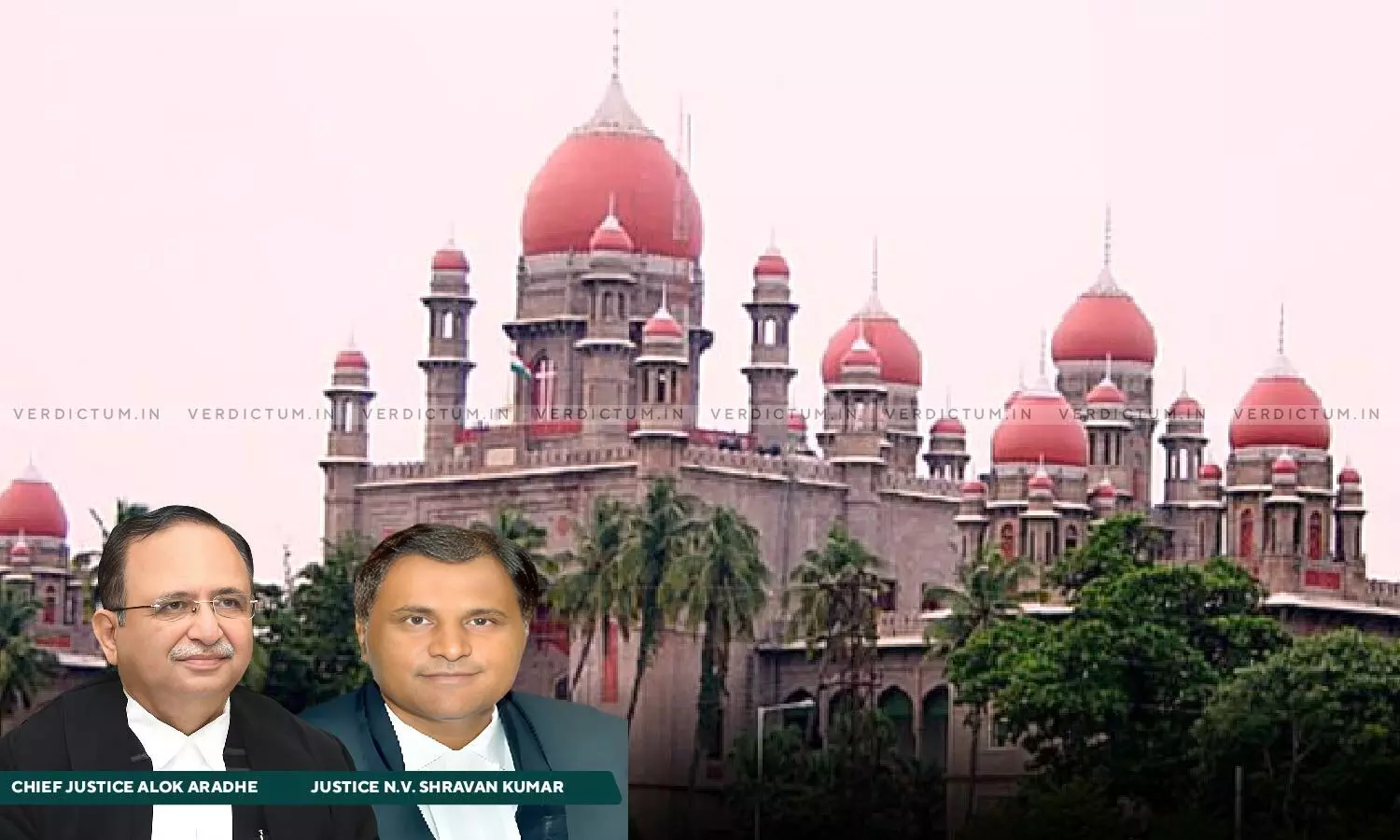
Validity Of Revised Electoral Roll Cannot Be Examined In A Proceeding Under Article 226: Telangana HC While Dealing With INC Leader’s Plea
 |
|The Telangana High Court while dealing with the petition filed by the Congress Leader Mohammed Feroz Khan has held that the validity of the revised electoral roll cannot be examined in a proceeding under Article 226 of the Constitution.
The aforesaid leader had sought special revision of electoral rolls to delete or remove the names of bogus persons from the electoral roll of the Nampally Assembly Constituency.
A Division Bench of Chief Justice Alok Aradhe and Justice N.V. Shravan Kumar said, “In exercise of powers under Section 21(2)(a) of the 1950 Act, the Electoral Registration Officer has already undertaken the work of revision of the electoral roll and the revised electoral roll has been published on 04.10.2023. The validity of the aforesaid revised electoral roll has not been assailed by the petitioner in this petition. Even otherwise, the validity of the aforesaid revised electoral roll cannot be examined in a proceeding under Article 226 of the Constitution of India.”
The Bench noted that the persons aggrieved by the final publication of the electoral roll have the remedy either under Section 22 or under Section 23 of the Representation of the People Act, 1950 Act to seek amendment, transposition, or deletion of any entry.
Advocate Zulfaquar Alam represented the petitioner while Senior Advocate Avinash Desai and Standing Counsel K. Siddharth Rao represented the respondents.
In this case, the petitioner had contested the Lok Sabha elections in 2019 from Hyderabad Lok Sabha Seat on Indian National Congress (INC) Ticket. He also contested the elections three times from Nampally Assembly Constituency in the State of Telangana and had lost the elections. The grievance of the petitioner was that the electoral roll of Nampally Assembly Constituency contains the names of bogus voters, dead persons and persons, who are having their names in two constituencies and who are already shifted from Nampally Constituency.
The petitioner, therefore, sought a writ of mandamus directing the respondents to undertake a special revision of electoral rolls to delete or remove the names of bogus, shifted, duplicate and the persons, who are already dead, from the electoral roll of Nampally Assembly Constituency.
The High Court after hearing the contentions of the parties observed, “A person whose name is not included in the electoral roll of a constituency may apply to the Electoral Registration Officer for inclusion of his name in that electoral roll. … Sub-section (3) of Section 23 of the 1950 Act provides for no amendment, transposition or deletion of any entry shall be made under Section 22 and no direction for inclusion of the name in the electoral roll of a constituency shall be given under this Section after the last date of making the nominations for election in that constituency or in the parliamentary constituency within which that constituency is comprised and before the completion of that election.”
The Court said that no case for invocation of powers under Section 21(3) of the 1950 Act is made out as the said power has to be exercised by the Election Commission for reasons to be recorded.
“After final publication of the electoral roll on 04.10.2023 under Section 21(2)(a) of the Act, the petitioner has not approached the Electoral Registration Officer seeking a direction to invoke powers under Section 21(3) of the 1950 Act”, also noted the Court.
The Court concluded that no case for interference is made out and that in case an aggrieved person approaches the Electoral Registration Officer either under Section 22 or under Section 23 of the 1950 Act, such a petition shall be dealt with in accordance with law.
Accordingly, the High Court disposed of the writ petition.
Cause Title- Mohammed Feroz Khan v. The Election Commission of India